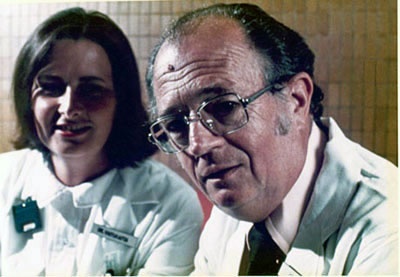...
| Div | ||||||||||
|---|---|---|---|---|---|---|---|---|---|---|
| ||||||||||
|
...
| class | usa-width-one-third |
|---|
...
JV: One of our concerns was that we [had] developed this assay and we wanted to protect the public from getting gouged with being charged for these tests, because we knew it would be picked up by the commercial outfits. But the legal counsel [of NIH] would not at that time allow patenting.
...
GB: We knew this would be a fantastic pregnancy test. We went to the government lawyers and said, “This is a technique that is going to be extraordinarily useful. Why not have NIH profit from it?” But since it was developed with public funds, the lawyers said no.
...


